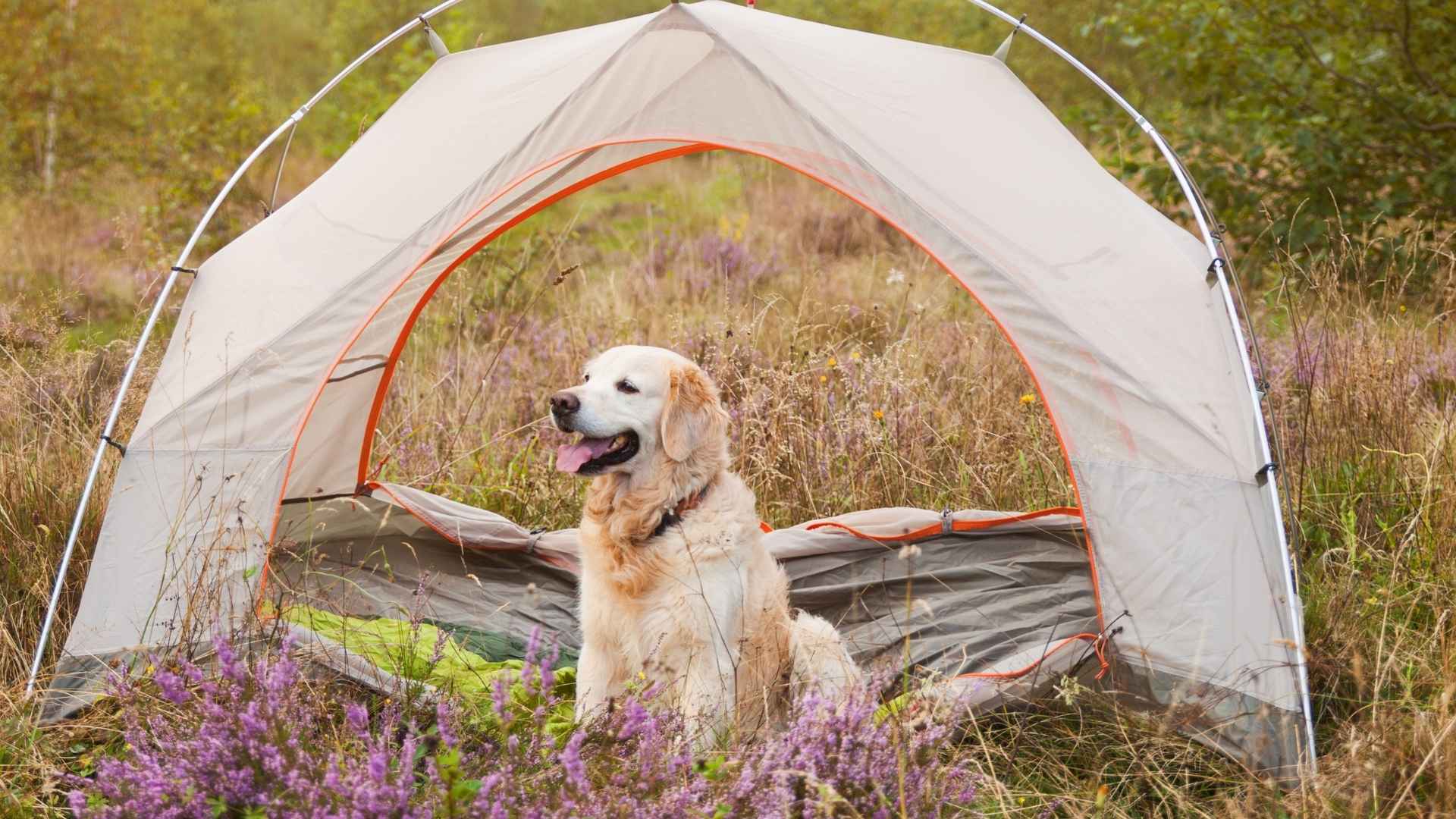What makes a dog a perfect camping companion? Is it their love of hiking? Their calm by the fire? Or maybe the way they never seem to tire on the trail?
Dogs and the outdoors go hand in paw—but not all breeds are equally suited to camping life. Some get cold easily. Others dislike dirt or distance.
But then there are the dogs who come alive under a canopy of stars. The ones who follow you through thick woods, sleep soundly in tents, and make every hike feel like home.
Below, you’ll find the breeds that truly love camping—not just walking, not just being outside, but sleeping, sniffing, and exploring in nature beside you. They don’t just tolerate the outdoors—they thrive in it.
Dog Breeds That Enjoy Camping Under The Sky
1. German Shorthaired Pointer
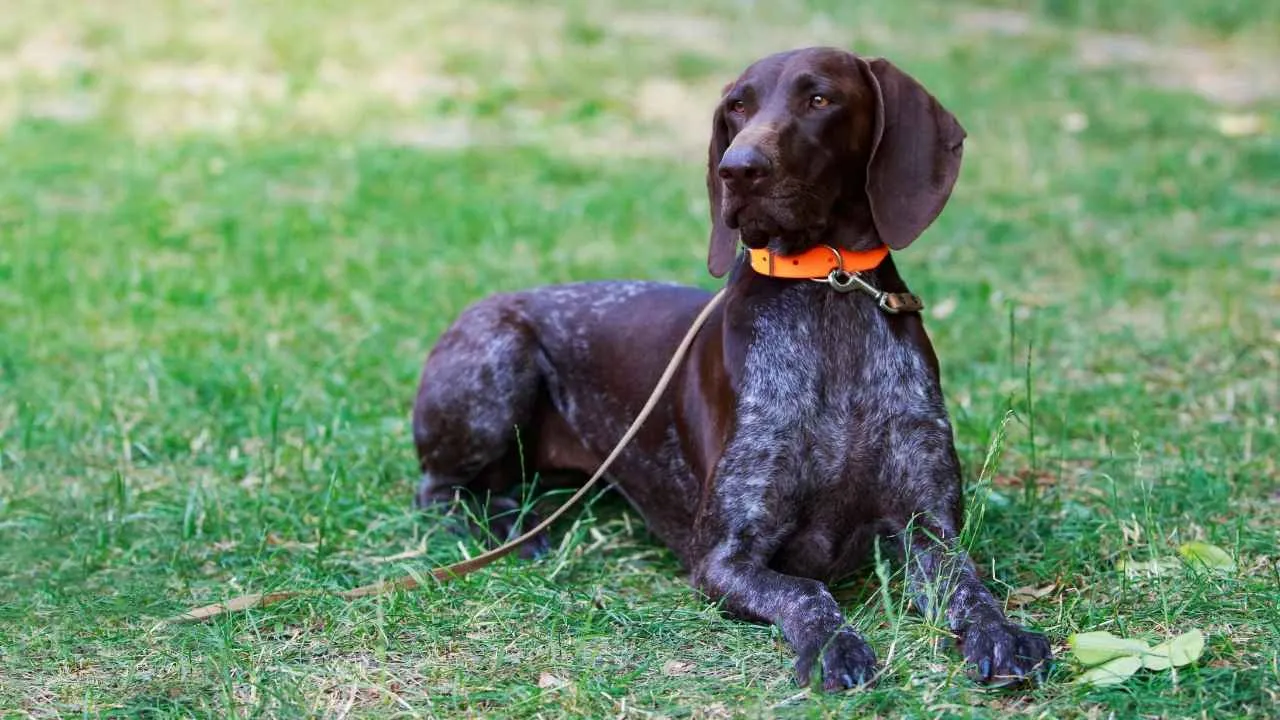
German Shorthaired Pointers were developed to run, track, swim, and retrieve, all without tiring quickly. Their athleticism and lean build allow them to move effortlessly across long distances. This makes them one of the most adaptable breeds for rough terrains and forest trails.
Natural Swimmers with Water-Endurance
One of the few hunting dogs known for excelling on land and in water, they’re strong, instinctive swimmers, as the AKC claims.
Their webbed feet and water-resistant coat allow them to cross creeks or splash into lakes confidently. Campers often note how easily they take to cold water without hesitation.
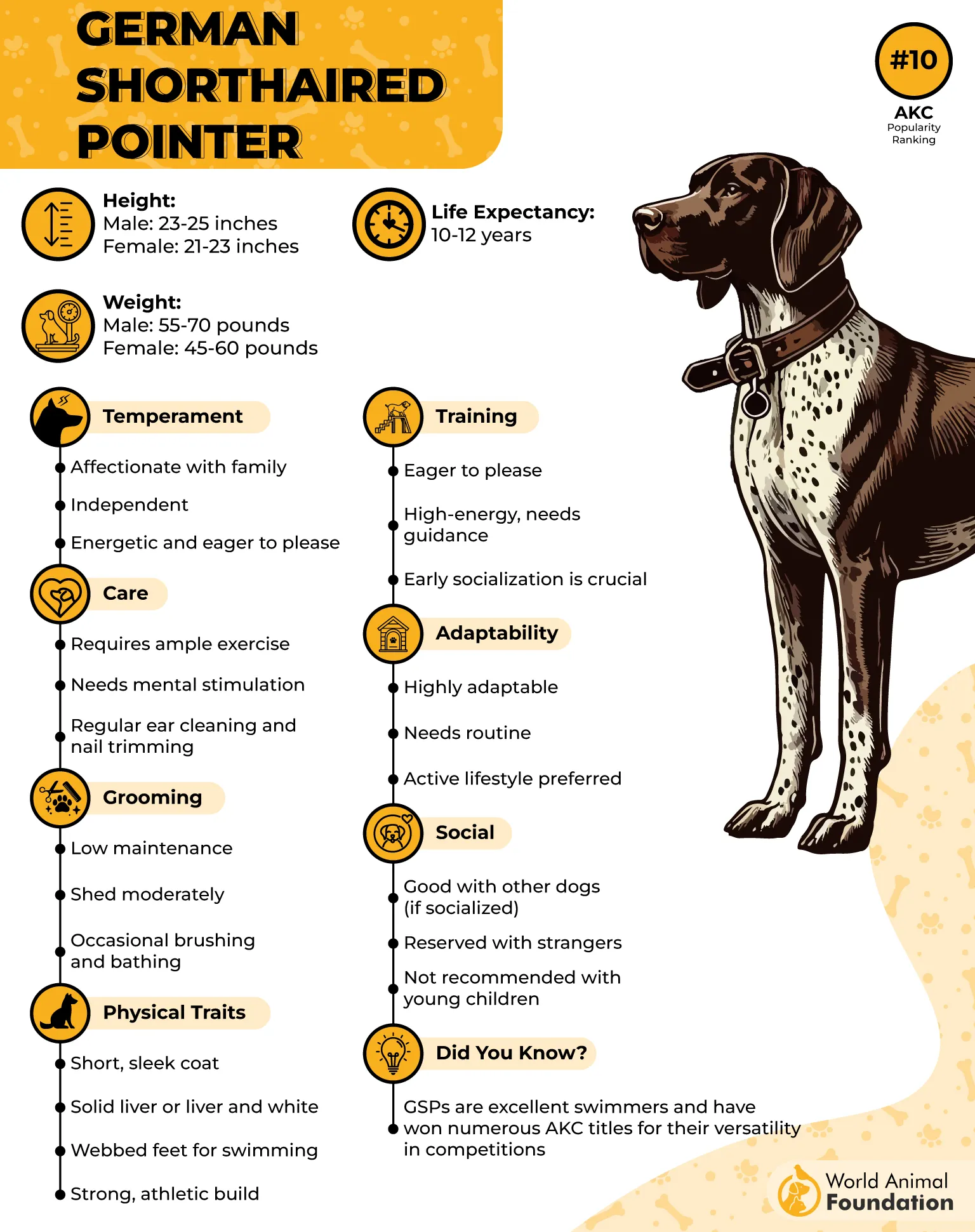
Thrive with Structure and Movement
They do best when the day is full of action — long walks, obstacle games, or tracking tasks. German Shorthaired Pointers can stay alert even after several hours of activity, thanks to their stable stamina. They’re also responsive to commands, making campsite routines easier to manage.
Friendly Temperament in Active Settings
Despite their drive, they adjust well around other dogs and are rarely territorial in open settings. They enjoy shared spaces and rarely shy away from group walks or pack environments. For people who enjoy regular outdoor adventures, this breed is a strong and capable match.
2. Labrador Retriever
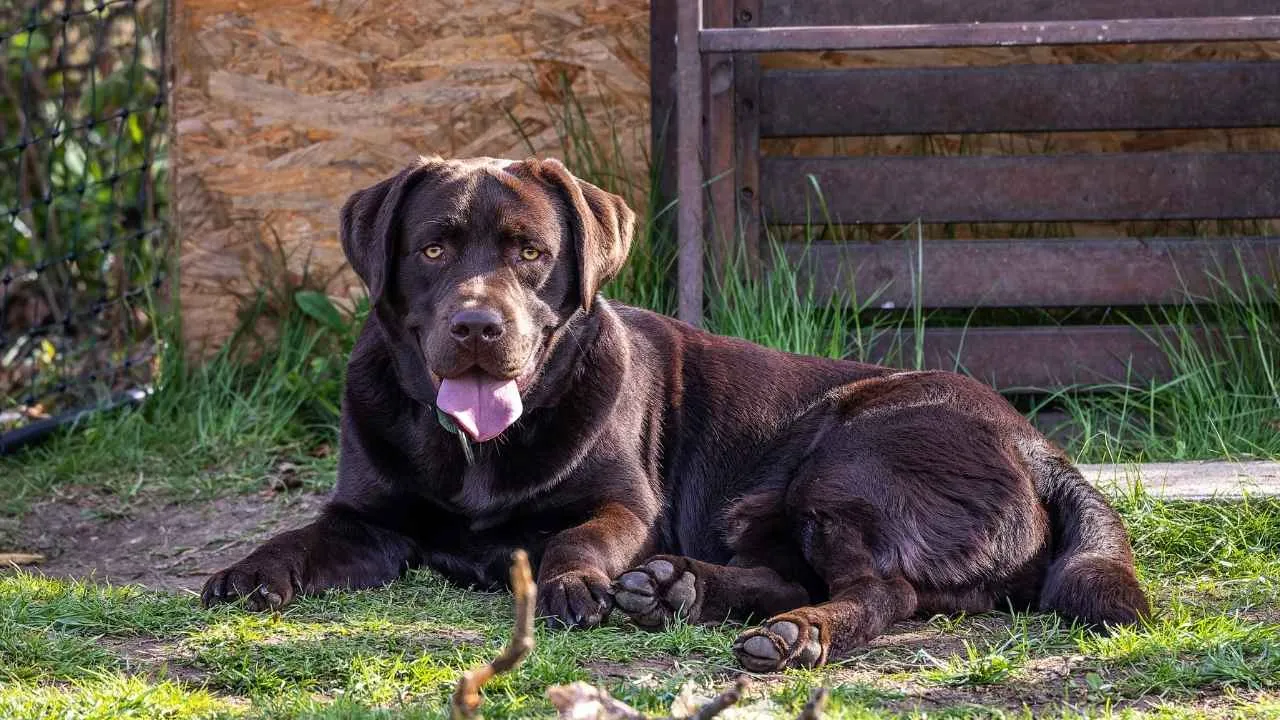
Labradors have a well-balanced, muscular frame that holds up across long hikes and varied terrain. Their thick double coat also gives them weather resistance, especially in cooler temperatures. Combined with their eager-to-move energy, this makes them naturally fit for long outdoor trips.
Water-Loving with Natural Agility
They are known for strong swimming skills, backed by an otter-like tail and webbed paws that aid in water movement.
Whether it’s a lake, riverbank, or gentle stream, Labs are usually the first to jump in. Their stamina in water is one of the longest-lasting among medium-sized breeds.
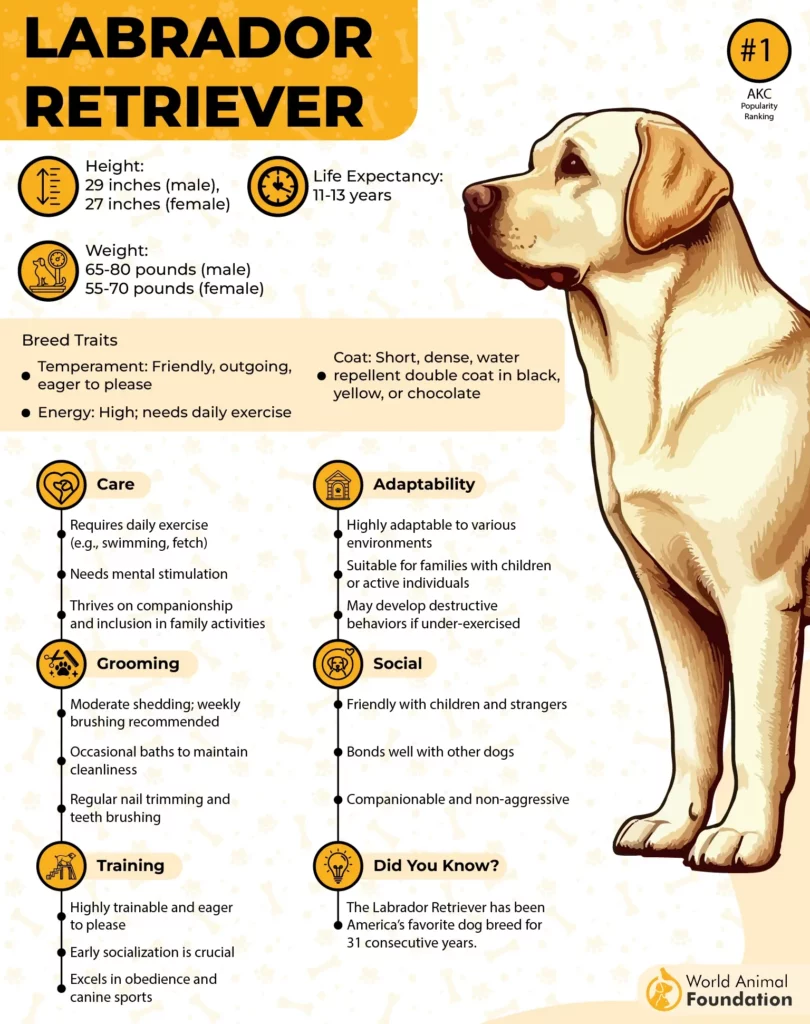
Temperament Suited for Campsites
Labradors are steady around groups, comfortable with children, and relaxed in noisy surroundings like open campgrounds. Their gentle nature helps them stay calm during sudden sounds or busy environments. They’re also quick to settle near tents or fires without excessive barking or restlessness.
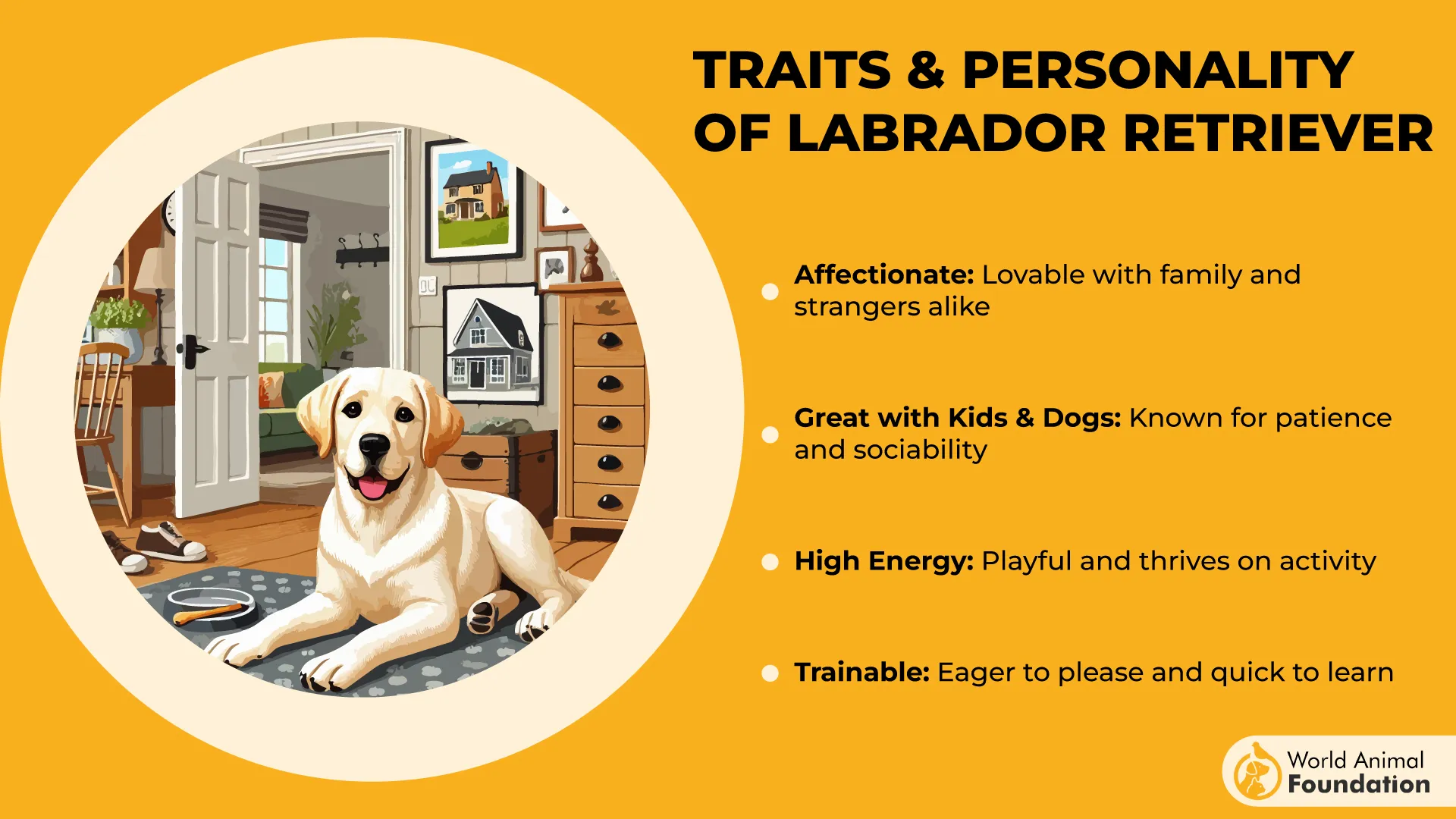
High Responsiveness and Trust
They are highly trainable, even in distracting outdoor spaces, which helps during off-leash moments. Labs remember trail routes, listen to voice cues, and show reliable attention. Though originally bred for retrieving waterfowl, many families now consider them the best dog for active outdoor living.
3. German Shepherd
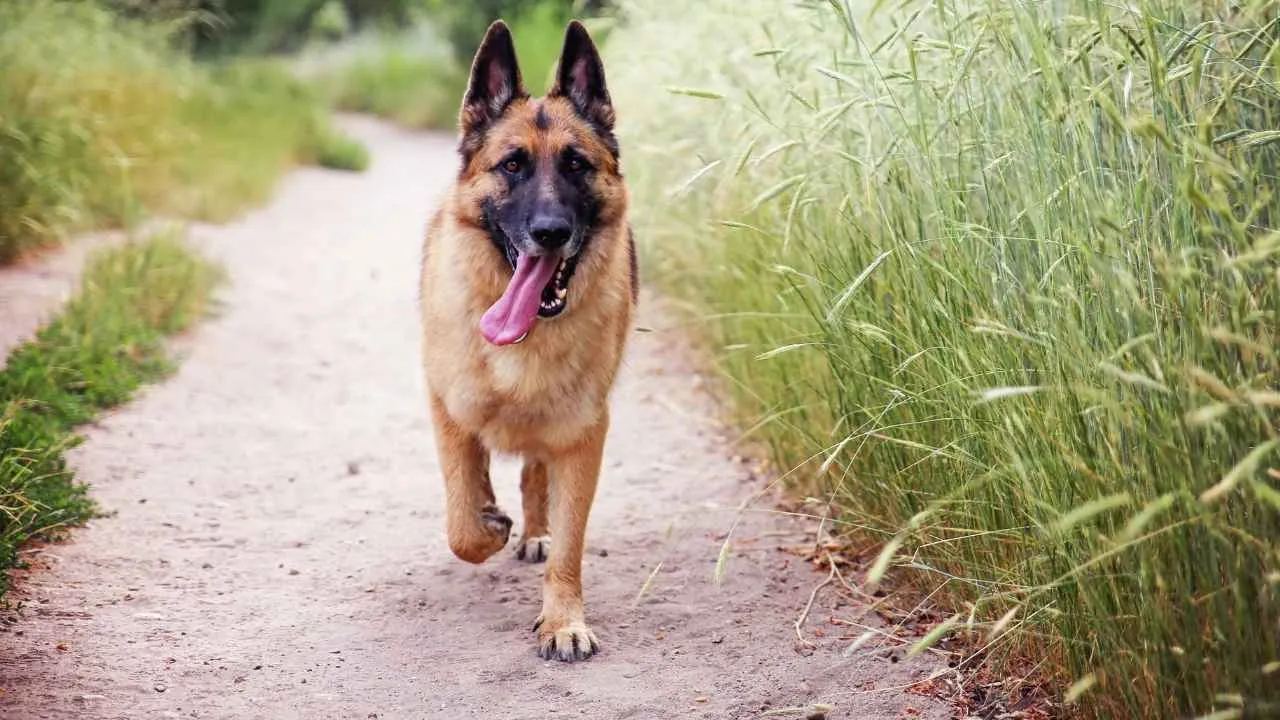
German Shepherds are built for mobility, power, and alertness — traits that align naturally with hiking trails and open spaces.
They have an efficient stride that allows them to cover ground steadily without tiring too quickly. Their double coat also offers seasonal protection during colder nights in campgrounds.
Strong Memory and Focus Outdoors
This breed has excellent recall and is quick to form environmental associations when outdoors. They remember pathways, react to distant movement, and understand campsite boundaries with consistent training. These skills help them adapt smoothly in variable outdoor terrains and forested regions.

Needs Daily Physical and Mental Tasks
German Shepherds are known for requiring structured exercise and constant mental stimulation to prevent boredom. Activities like tracking scents, learning trail cues, or following multi-step commands keep them focused. They’re well-suited for multi-day hikes that involve new settings and tasks.
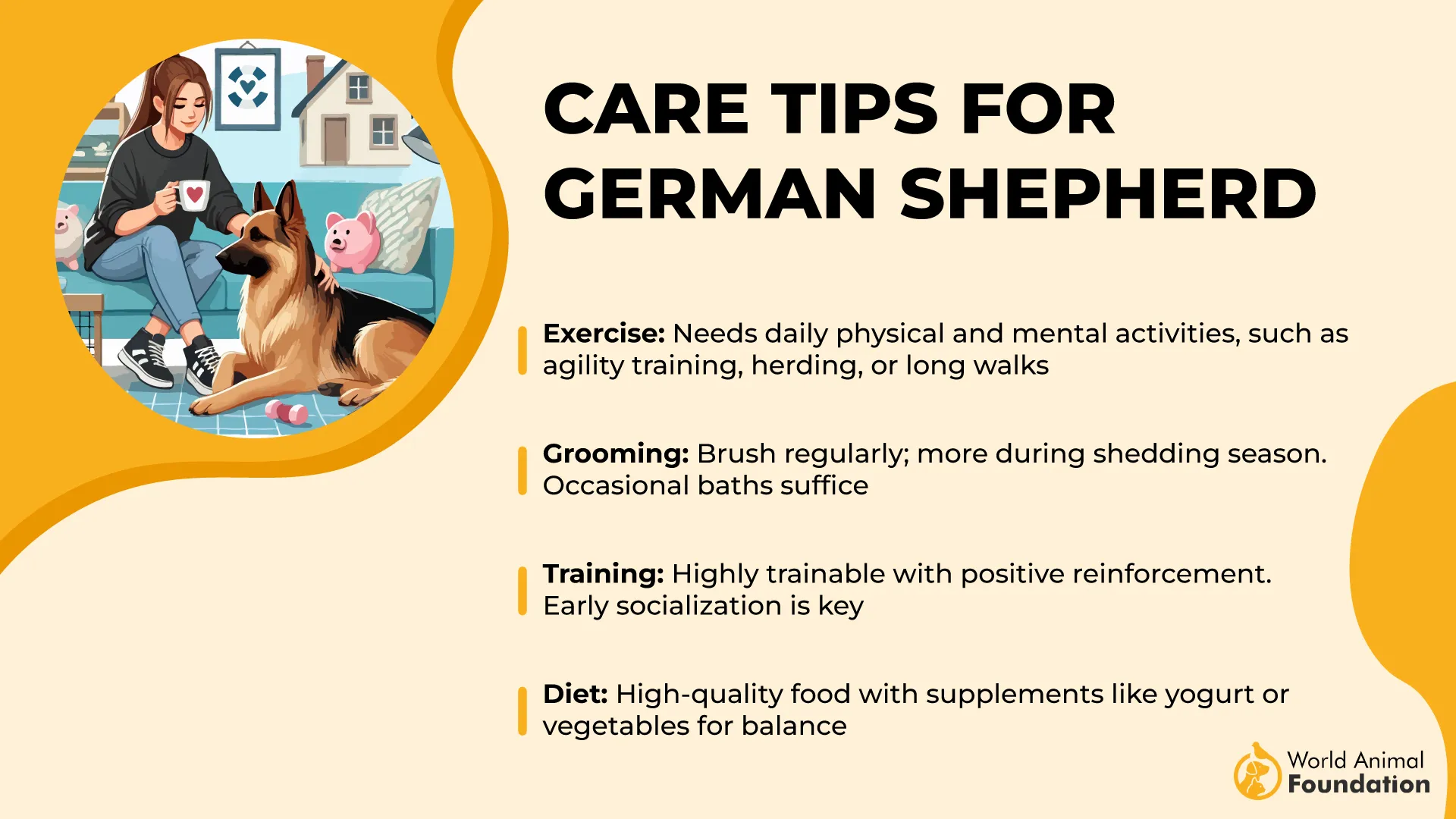
Reliable in Group and Solo Settings
They stay composed around others, whether in groups or isolated hikes, and respond calmly to unfamiliar sights or animals.
When socialized early, they engage with other dogs without showing unnecessary dominance. For campers planning daily outdoor activities, this is the right dog to rely on.
4. Australian Shepherd
Did You Know: Despite the name, Australian Shepherds were actually developed in the United States.
Australian Shepherds have sharp observational skills that make them naturally alert in unfamiliar surroundings.
They’re quick to notice changes in the campsite — from sounds in the trees to movements near the tent. This natural attentiveness helps them settle into camping routines with confidence.
Movement That’s Driven by Instinct
Bred to work across wide ranch lands, these dogs excel when given space to roam, hike, and explore. Campers who travel on foot often choose Aussies because of their long-distance movement and control. Their instinct to move with purpose makes them ideal for active getaways.
Benefits of Consistent Tasks
They thrive on structure — games, directions, or small tasks throughout the day. You’ll find them herding kids, following trails, or circling the tent area like they have a mission. When given regular physical activity, they stay balanced and mentally satisfied.
Deep Loyalty in Natural Settings
They tend to form a strong bond with one or two people and rarely stray from their chosen group. Even in open areas with other dogs, they check back in often and prefer close proximity. Their boundless energy is channeled well when paired with leadership and time outdoors.
5. Beagle
Did You Know: The Beagle’s nose is so reliable that it’s used in U.S. airports as part of the “Beagle Brigade” — a USDA team that detects prohibited agricultural items.
Beagles rely heavily on scent, using their 220 million scent receptors to track subtle trails. Their ability to stay focused for hours makes them ideal for wooded hikes and campsite exploration. Because of their nose-first instincts, many owners use long leads during outdoor stays.
Low-Slung Build Helps on Rough Terrain
With strong shoulders and a compact frame, they handle uneven trails without needing extra support. Their feet are arched and thickly padded, giving them more grip across rocky or soft ground. Even small inclines don’t slow them down once they catch a scent.
Needs Engagement to Avoid Restlessness
Though adaptable, Beagles require activities that keep their brain and body busy throughout the day. They respond well to tasks like treat hunts, short agility runs, or following a pre-set path. Without structured outlets, they tend to bark or dig around the site.
Social by Nature, Curious in Spirit
They bond quickly with campers and are especially tuned into voices, whistles, and repetitive sounds. Beagles also do well in mixed-camping groups, often getting along easily with a new friend. Their compact size makes them manageable even when traveling with multiple pups.
6. Border Collie
Border Collies were developed specifically for herding sheep across rugged countryside, requiring both stamina and extreme focus.
Their instinctive ability to control movement with just eye contact is unmatched in the herding group. This same trait often appears in camping when they keep track of people or gear without being told.
Built for Speed and Mental Engagement
Their lean frame and high energy levels make them naturally quick and agile in unfamiliar terrain, as stated in Purina.
They enjoy physical tasks but require equal mental stimulation throughout the day. Long hikes or structured outdoor play routines help satisfy both needs at once.
Thrives in Routine and Precision
Border Collies respond best to detailed patterns and consistent expectations during extended outings. They often memorize new trails within minutes and anticipate campsite habits after just one day. This makes them a useful companion when packing, setting up, or rotating through travel routines.
Reacts Well to New Environments
While they’re often cautious at first, Border Collies adjust well to new outdoor locations when introduced gradually.
Their awareness is acute — they often notice unfamiliar sounds before their humans do. Even in distraction-filled campsites, they stay alert but rarely become anxious or reactive.
7. Siberian Husky
Bred by the Chukchi people of Siberia, Huskies were developed to pull sleds across icy tundra for hours without tiring. Their compact bodies are designed for energy conservation during long-distance travel. Even today, that built-in endurance is what makes them such natural campers and trail runners.
Temperature Resilience in Cooler Climates
With a dense double coat that regulates body temperature, Huskies stay comfortable through cold nights outdoors. Their undercoat traps heat, while the outer layer sheds snow and moisture. They’re known to curl into a warm ball when sleeping outdoors, shielding their nose with their tail.
Natural Navigators with Trail Awareness
They tend to memorize paths quickly, often showing signs of recognizing return routes without direction. Huskies have a well-developed spatial sense and rarely wander far from familiar areas. This makes them especially reliable in open campsites or forested trails with proper training.
Social Behavior During Group Travel
They’re cooperative by nature and were bred to work in sled teams, which shaped their easygoing group dynamic. Their communication through body language is clear and predictable during hikes. With consistent routines, they adjust well to shared responsibilities during outdoor stays.
Conclusion
For those who love the great outdoors, choosing a dog that shares your love for wild places makes all the difference. Some are natural sled dogs with stamina. Others—like a small dog with a short coat—simply need the right training to thrive.
From majestic dogs with hunting instincts to well-behaved companions ready for any weather conditions, the bond grows stronger in the open air. These dogs don’t just show up—they participate.
Whether through agility training or quiet nights by the fire, they turn camping into something more. With care and routine, your dog can enjoy every outdoor escapade as much as you do.


